
Image taken by the HiRISE camera on the Mars Reconnaissance Orbiter reveals several shades of light-toned layers, likely sedimentary deposits. Credit: NASA/JPL-Caltech/University of Arizona
The geologic history of a planet is written in its layers. Erosion of the surface reveals several shades of light-toned layers, likely sedimentary deposits, as shown in this image taken by the HiRISE camera on the Mars Reconnaissance Orbiter. The most recent geologic features are the narrow sand dunes snaking across the top of all the rocks.
HiRISE operates in visible wavelengths, the same as human eyes, but with a telescopic lens that produces images at resolutions never before seen in planetary exploration missions. These high-resolution images enable scientists to distinguish 1-meter-size (about 3-foot-size) objects on Mars and to study the morphology (surface structure) in a much more comprehensive manner than ever before.

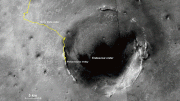
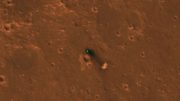
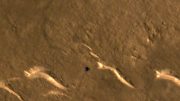
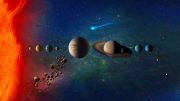
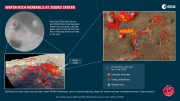
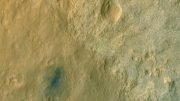
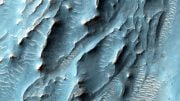
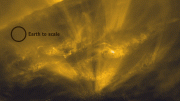
Be the first to comment on "New HiRISE Image Reveals The Red Planet’s Layered History"